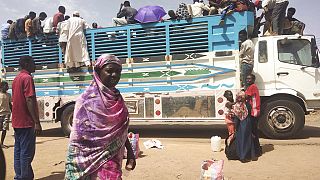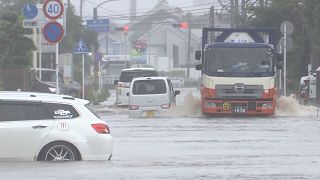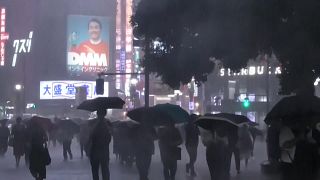The Morning Call
After several weeks of wrangling between the coronavirus pandemic and the International Olympic Committee (IOC) and the Tokyo Olympic Coordination Committee (TOC), COVID-19 finally got the upper hand. So far, only the First and Second World Wars had overcome this sports event.
Once again the coronavirus has dictated rule to the world of sport. The Olympic Games in Tokyo 2020 scheduled from July 24 to August 9, 2020, will no longer take place this year but rather in 2021 still in Japan, which already organized that of 1964. Until the very near past, for the International Olympic Committee and the International Paralympic Committee, and even the Japanese authorities, it was out of the question to envisage the cancellation or postponement of this year’s Tokyo Olympics, despite the scale of the coronavirus pandemic.
But on March 24, the IOC and Japan jointly announced the postponement of the Games to 2021. The postponement comes a week after the Union of European Football Associations (UEFA) announced the postponement of the European Men’s Championship by one year. Never before had the Games been postponed or organised in an odd year. And as proof, the 2010 Winter Olympics in Vancouver took place during the 2009 pandemic flu season without any particular incident.
The Rio 2016 Olympics, which had been threatened with cancellation due to the Zika virus outbreak, again went on without a hitch. After this postponement, the question is, at what time next year’s Olympic Games will take place. The spring track is being considered, but the summer track is not ruled out.
Organizing the Games in the first quarter of 2021 is unimaginable given the number of outdoor events that could not be held in the winter. As for the spring, this possibility would come up against the calendars of sports such as football, basketball, handball, volleyball as well as certain individual sports such as tennis or golf, which are totally incompatible.
So the simplest thing to do is to look for dates similar to those planned for this year. But here again, the IOC will have to find common ground with the Federations of the two major Olympic games, athletics and swimming, for a shift in their calendars when their world championships are scheduled for this period. Swimming is initially scheduled from July 16 to August 1 in Japan and track and field from August 6 to 15 in Eugene, USA.
If you look closely, the coronavirus has not yet finished shaking up the sports world. One after the other, several renowned sportsmen and women have confirmed one after the other that they have tested positive for Covid-19. From fooball and basketball to handball, volleyball and cycling, the list is getting longer and longer.
The Nigerian footballer, King Udoh, was infected with the coronavirus in Italy and became the first professional football player to be diagnosed with the disease in Italy.
Togolese striker Emmanuel Adebayor was placed in isolation in Benin under a protocol related to the new coronavirus, after leaving Paraguay and Club Olimpia for Togo. Also affected by the pandemic is South African swimmer Cameron van der Burgh.
Espanyol Barcelona revealed that six players in their squad had tested positive for the coronavirus, without revealing their identities. Italian professional football club Fiorentina reported a total of 10 positive cases, including three hospitalised.
Cristiano Ronaldo, meanwhile, has been in voluntary isolation for several days on his home island of Madeira, but has donated three intensive care units to several Portuguese hospitals.
Lionel Messi, on his part, has donated one million euros to the Hospital Clinic of Barcelona and to a hospital in Argentina, in order to invest in the equipment needed to fight this health crisis.





![Africanews celebrates fifth anniversary [Night Shift]](https://static.euronews.com/articles/stories/05/57/72/74/320x180_cmsv2_6b1e7837-a917-526b-b3b4-4582a3f8bcac-5577274.jpg)
![Africanews celebrates fifth anniversary [Morning Call]](https://static.euronews.com/articles/stories/05/57/72/70/320x180_cmsv2_a6c857d4-80a3-510a-88e6-f060ea8d9ee9-5577270.jpg)






Go to video
IOC sets election timetable to succeed Thomas Bach
01:28
Mpox is not the new COVID - WHO
Go to video
Mpox: Understanding the global emergency and the risks ahead
00:59
Vaccines to combat Mpox outbreak may delay for months
01:20
US sprinter Allyson Felix one of four athletes elected to join the IOC
Go to video
Paris 2024 Olympics: Ngamba one victory away from first refugee medal